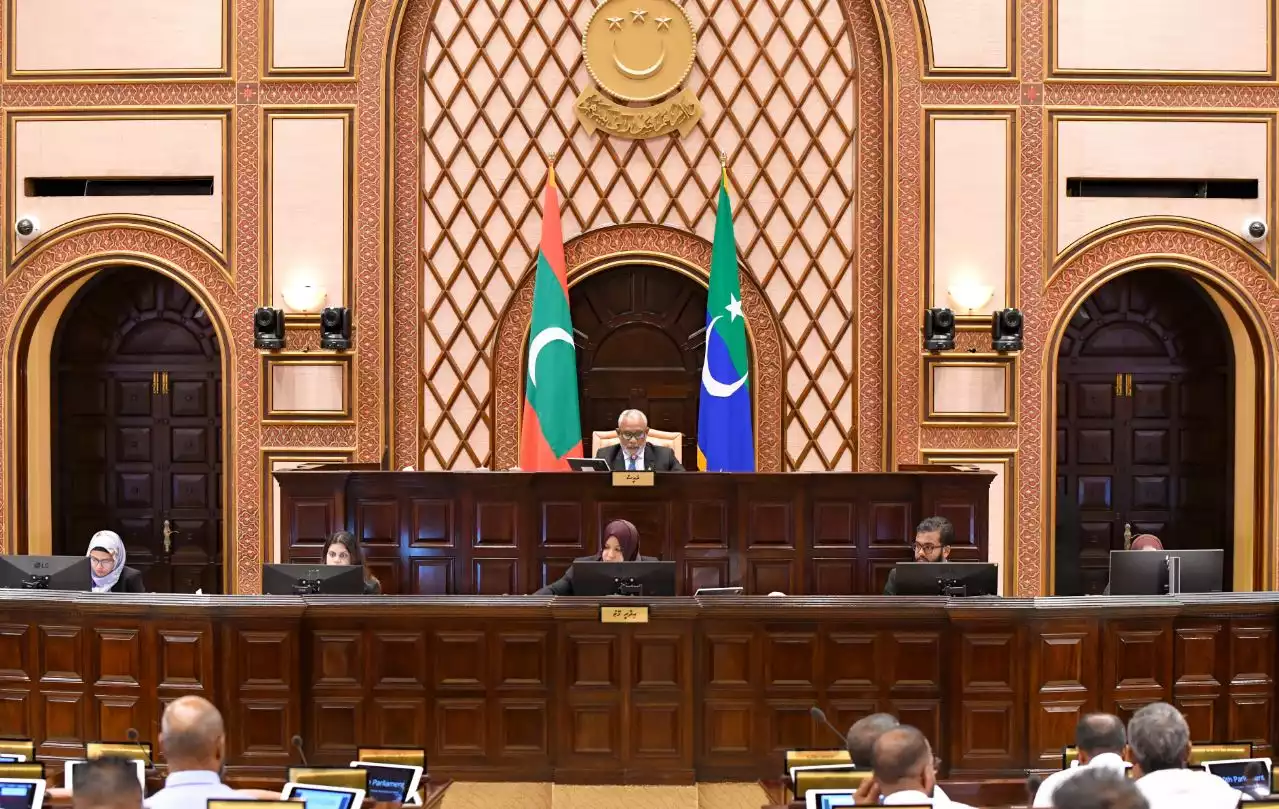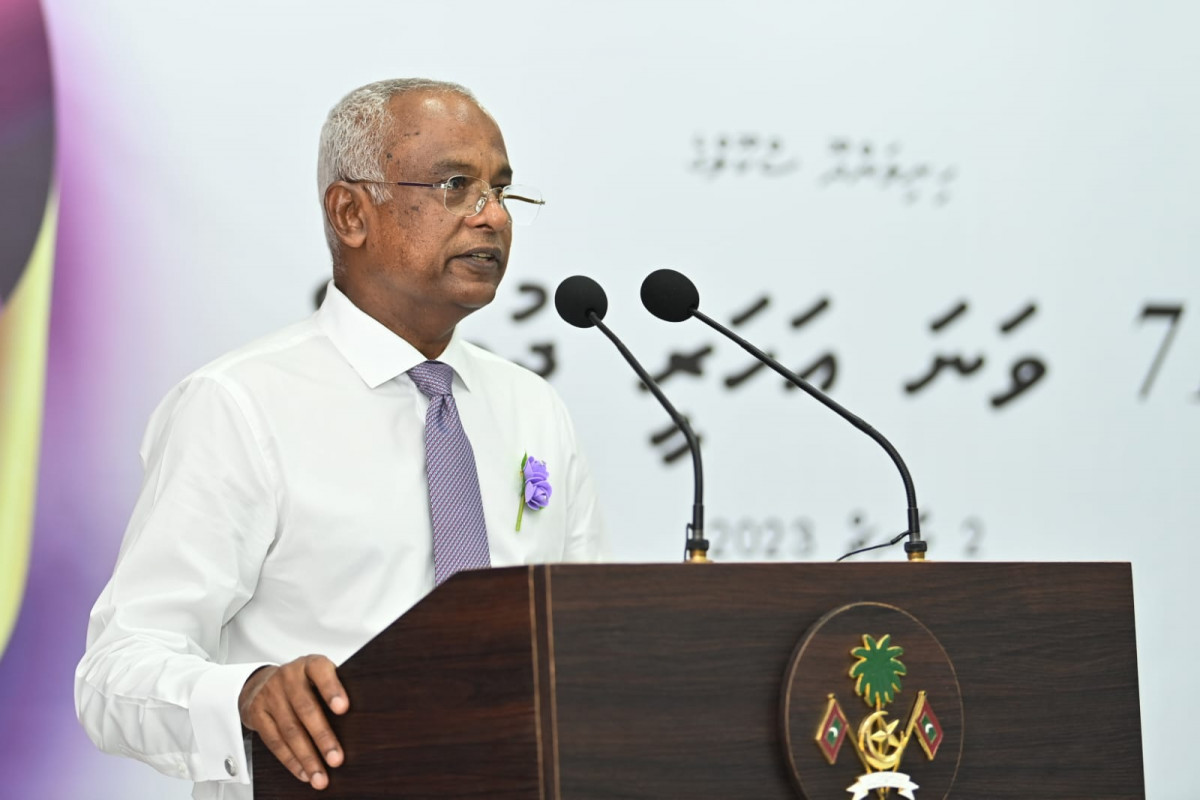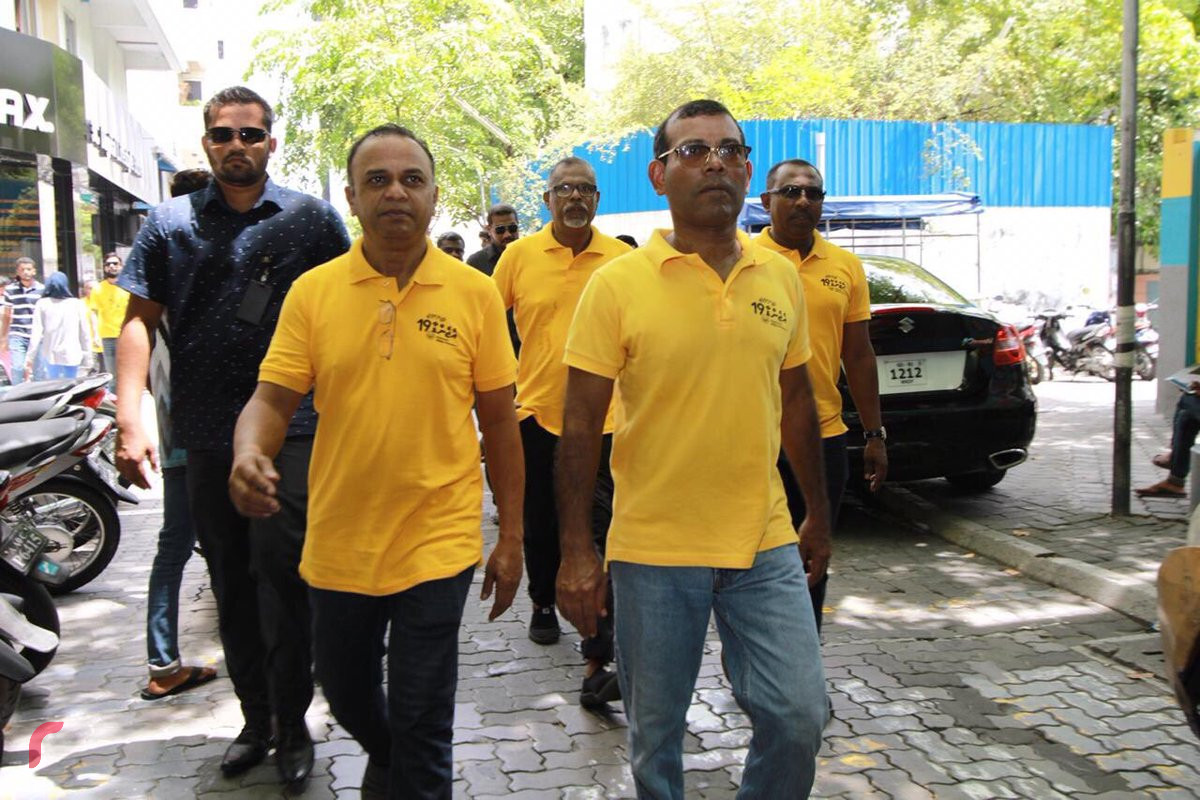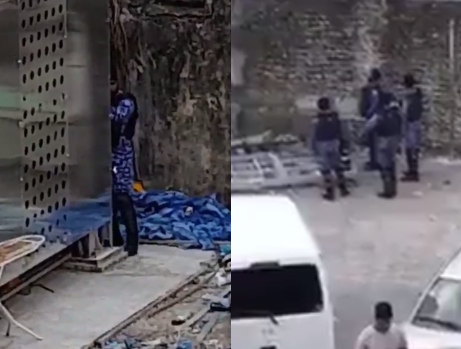Majlis rejects emergency motion on use of sonic weapon, excessive force against protesters
Majlis rejected an emergency motion to debate police use of LRAD and excessive force during the Lootuvaifi protest with a 40-12 vote


A sitting of the People's Majlis
An emergency motion submitted to the People’s Majlis alleging the use of a Long Range Acoustic Device (LRAD) and disproportionate force by police during the recent “Lootuvaifi” protest has been summarily rejected by the government-majority People’s Majlis.
The motion, raised by MP for South Galolhu constituency Meekail Ahmed Naseem during Monday’s sitting, sought to initiate a formal debate on the government's deployment of crowd control measures widely condemned as excessive and dangerous. Despite the seriousness of the allegations, the motion was struck down by a vote of 40 to 12, with main ruling People's National Congress (PNC) lawmakers closing ranks to shield the administration from scrutiny.
According to the motion, police forces used LRAD, a controversial sonic weapon, without any prior warning to disperse a peaceful assembly organized by the main opposition Maldivian Democratic Party (MDP) on Friday night. LRADs, which emit high-intensity sound waves, are known to cause severe auditory and psychological damage, including hearing loss and trauma. International health bodies have raised significant concerns about their safety and legality in civilian contexts.
The motion also highlighted a glaring lack of transparency, no operational procedures or safety guidelines regarding LRAD deployment were made public before its use. The absence of such disclosures raises serious legal and ethical questions about whether the use of the device was even lawful.
Despite mounting criticism from rights advocates and segments of the public, the government has remained defiant. The police have claimed their actions were in line with legal frameworks, a justification that has done little to quell growing outrage over what many view as the state’s accelerating crackdown on dissent.
By rejecting the motion outright, the ruling party has sent a clear signal, it is unwilling to entertain accountability, even in the face of credible allegations of state-sponsored violence. This decision deepens fears that the Maldives is sliding further into a climate where protest is criminalized, and force is the first, rather than the last, resort.
The refusal to debate the use of a weapon designed for military conflict against unarmed citizens marks a chilling moment in the country’s democratic journey. In a system meant to safeguard the people, silence and denial have now become tools of power.






